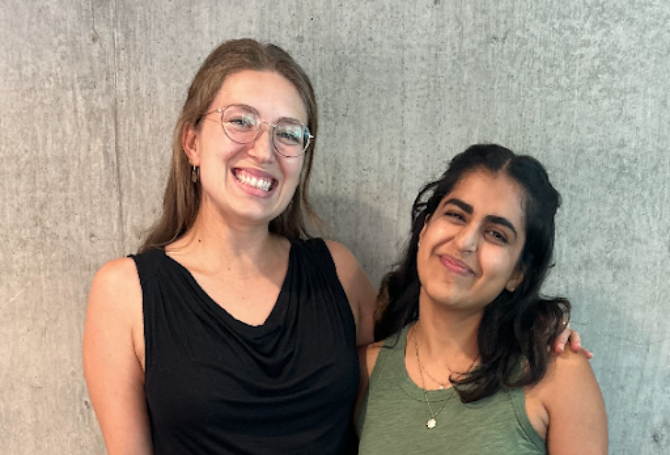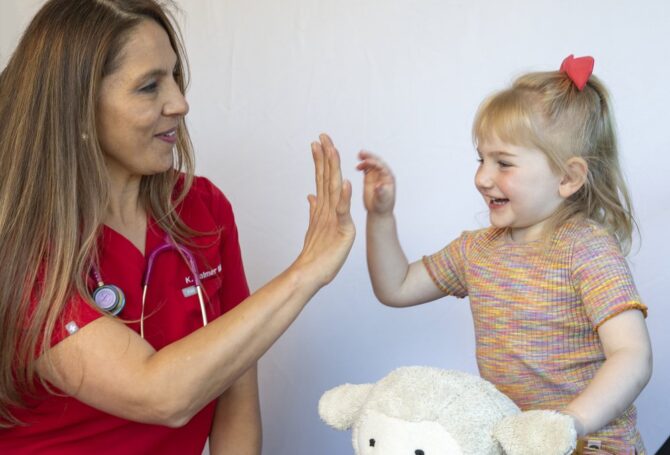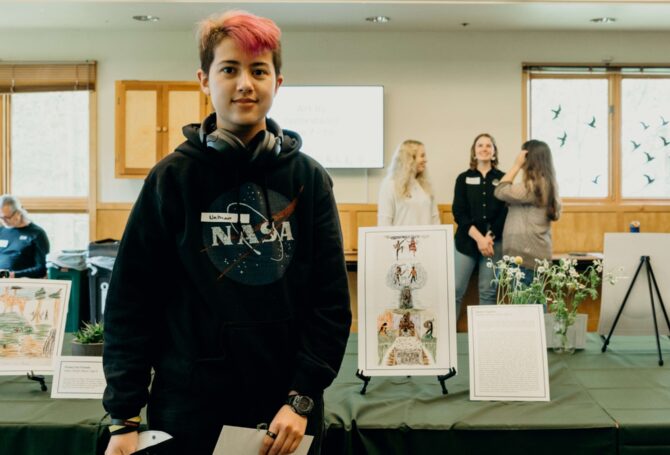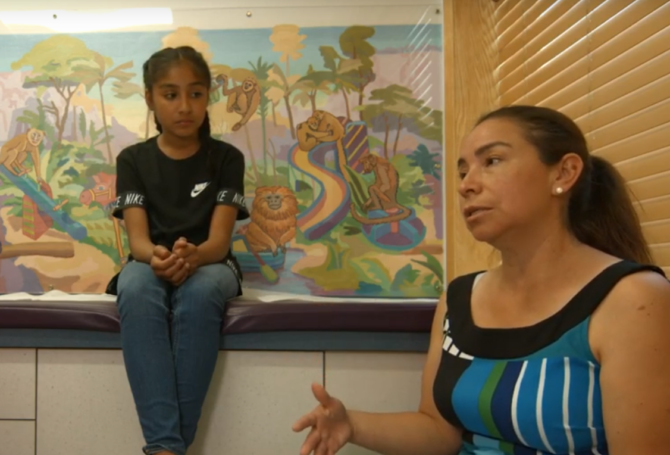
November 19, 2019
OPS recently completed a two-year ECHO Project that helped four clinics in Oregon and SW Washington boost HPV vaccination initiation rates in their communities.
This AAP-funded project used the ECHO model to allow participating clinics to continuously develop their quality improvement (QI) skills and increase patient confidence in HPV vaccination. ECHO is a tele-mentoring platform that uses video conferencing to connect a multidisciplinary team of experts with primary care providers in local communities.
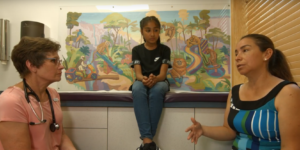
A scene from an OPS video on addressing vaccine hesitancy through motivational interviewing.
Each month, clinics reviewed eligible patient charts and recorded whether providers were able to initiate or complete HPV vaccination doses during the visits. After submitting this QI data to OPS, the clinics met via video conferencing. Each monthly video call included a brief presentation by an HPV expert, followed by participants presenting their QI work for discussion and problem-solving. They learned how to share stronger vaccine-related messaging to parents, began recommending a two-dose process, and began encouraging younger patients – as early as age nine – to start the vaccine.
OPS Quality Improvement Committee Chair Sandra Rood, MD, participated in the project as the QI expert, and OPS Vice President Alanna Braun, MD, served as the project’s HPV content expert. These doctors joined each video call to help participants understand the monthly QI data and to brainstorm change ideas.
Final aggregate data shows that HPV vaccination initiation rates increased 33% and missed opportunity rates decreased by 19%. Additionally, 100% of surveyed participants said that after this project they felt ‘excellent’ about their ability to introduce the HPV vaccine in a way that optimizes parent vaccine confidence. 83% said they felt ‘very good’ or ‘excellent’ about communicating with caretakers who were hesitant about the HPV vaccination.
One participant wrote, “This project has given me more confidence in the HPV vaccine. Providing safety and efficacy information with the right techniques shows that patient can proceed with trust and confidence in both the provider and vaccine for their child.”
Other successes from the project include a series of OPS videos on addressing vaccine hesitancy through motivational interviewing; a Russian translation of the AAP’s Adolescent Immunization Flip chart; and 25 MOC-IV points for participating providers.
OPS is starting a new ECHO QI Project about pediatric anxiety. If you are interested in participating, please contact Amber Ziring, OPS Project Manager.

